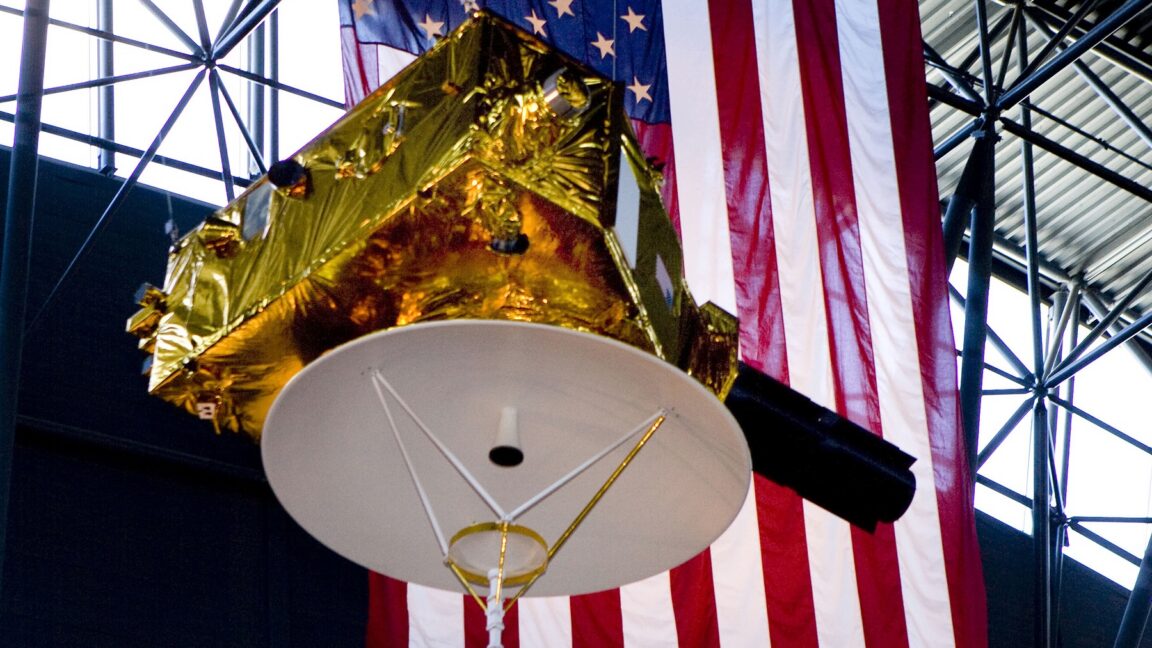Science
Congress Faces Deadline to Secure NASA’s Future Space Missions

Federal funding for a range of critical space missions is set to expire at the end of this month, threatening the future of 19 active projects. These missions, which study climate change, explore the Solar System, and address cosmic mysteries, could face closure if Congress does not act before September 30, 2023. With the budget for fiscal year 2026 still in limbo, the potential for a government shutdown looms large.
The White House’s budget proposal suggests a drastic reduction of nearly 25 percent to NASA’s overall funding, with the Science Mission Directorate facing cuts of almost 50 percent. Such reductions could halt at least 41 missions, including 19 currently operational and several others in development. Although Congress has drafted its own budget bills that largely oppose these cuts, concerns remain widespread among scientists and space enthusiasts alike.
Many of the missions facing cancellation are already operating beyond their intended lifetimes. They provide invaluable data that cannot be easily replicated. The missions include notable projects like the Chandra X-ray Observatory, which survived budget threats last year, as well as the New Horizons spacecraft, famous for its 2015 flyby of Pluto.
Alan Stern, the principal investigator for New Horizons at the Southwest Research Institute (SWRI), emphasized the spacecraft’s ongoing health and functionality. “New Horizons is perfectly healthy,” he stated, noting its potential to operate well into the 2040s. The mission, which has already traveled over 2.5 billion miles (4.1 billion kilometers) beyond Pluto, continues to yield important scientific findings. Recently, it revealed that the Kuiper Belt may extend farther than previously thought.
Stern expressed concern that a budget cut would signify a “tragic capitulation” of U.S. leadership in space science. He underscored that cutting missions that are still yielding valuable data would be both “fiscally irresponsible” and detrimental to America’s standing in the global arena. “There’s much more money in overruns than there is in what it costs to run these missions,” he added, warning that ceasing operations could push the U.S. behind competitors like China and Europe in space exploration.
Another mission at risk, Juno, has been orbiting Jupiter since 2016. Lead scientist Scott Bolton also from SWRI, confirmed that Juno is operational, despite some radiation-related degradation affecting its camera. Juno’s current mission is set to conclude at the end of this month, and Bolton highlighted the potential scientific insights still to be gained.
“We can’t really produce the natural radiation environment at Earth or Jupiter in a lab,” he explained, indicating that Juno’s experiences provide valuable lessons for future missions, including the Europa Clipper, which is scheduled to enter orbit around Jupiter in 2030.
Both Stern and Bolton have submitted outlines to NASA detailing what it would take to “close out” their missions if funding is not secured. Closing out a mission could involve irreversibly shutting down spacecraft, a process that would prevent any future recovery or mission extension.
As the September deadline approaches, uncertainty looms over the future of these vital missions. Both scientists remain hopeful that Congress will act swiftly to ensure continued funding for NASA’s exploration endeavors. “We just are waiting to hear and watching all of the budget scenarios,” Bolton remarked. The outcome of these discussions will determine not only the fate of ongoing missions but also the trajectory of U.S. leadership in space exploration for years to come.
-

 Science3 months ago
Science3 months agoToyoake City Proposes Daily Two-Hour Smartphone Use Limit
-

 Top Stories3 months ago
Top Stories3 months agoPedestrian Fatally Injured in Esquimalt Collision on August 14
-

 Health3 months ago
Health3 months agoB.C. Review Reveals Urgent Need for Rare-Disease Drug Reforms
-

 Technology3 months ago
Technology3 months agoDark Adventure Game “Bye Sweet Carole” Set for October Release
-

 World3 months ago
World3 months agoJimmy Lai’s Defense Challenges Charges Under National Security Law
-

 Lifestyle3 months ago
Lifestyle3 months agoVictoria’s Pop-Up Shop Shines Light on B.C.’s Wolf Cull
-

 Technology3 months ago
Technology3 months agoKonami Revives Iconic Metal Gear Solid Delta Ahead of Release
-

 Technology3 months ago
Technology3 months agoApple Expands Self-Service Repair Program to Canada
-

 Technology3 months ago
Technology3 months agoSnapmaker U1 Color 3D Printer Redefines Speed and Sustainability
-

 Technology3 months ago
Technology3 months agoAION Folding Knife: Redefining EDC Design with Premium Materials
-

 Business3 months ago
Business3 months agoGordon Murray Automotive Unveils S1 LM and Le Mans GTR at Monterey
-

 Technology3 months ago
Technology3 months agoSolve Today’s Wordle Challenge: Hints and Answer for August 19









